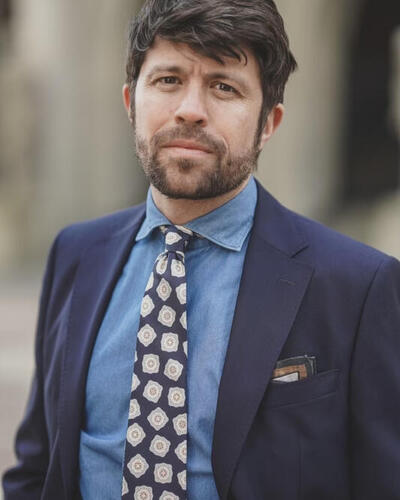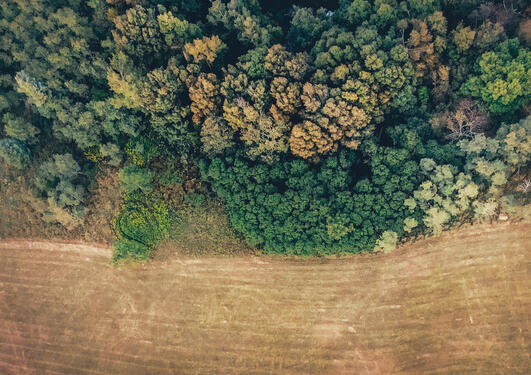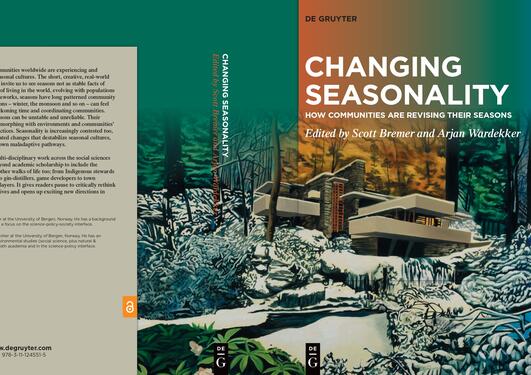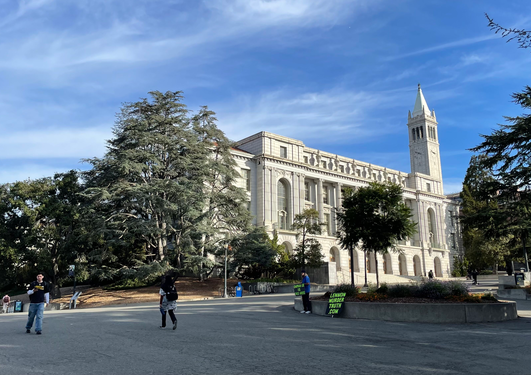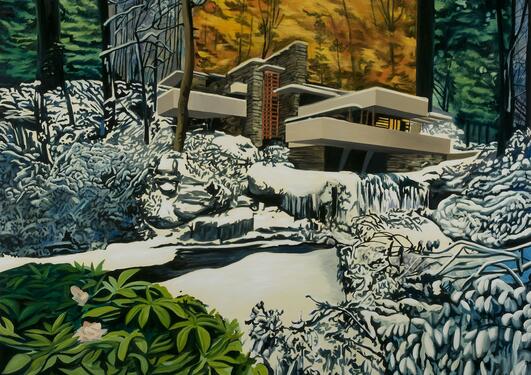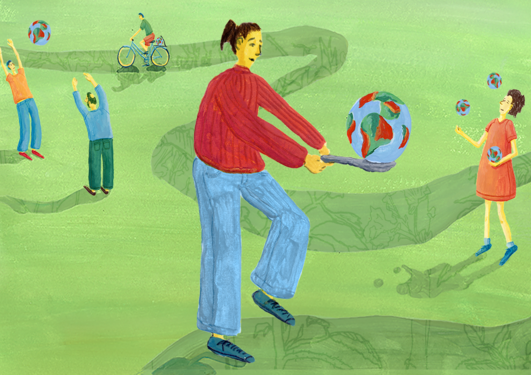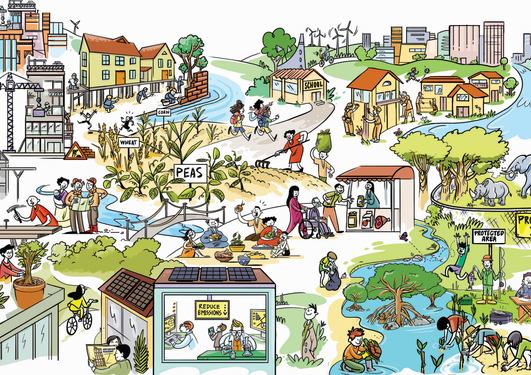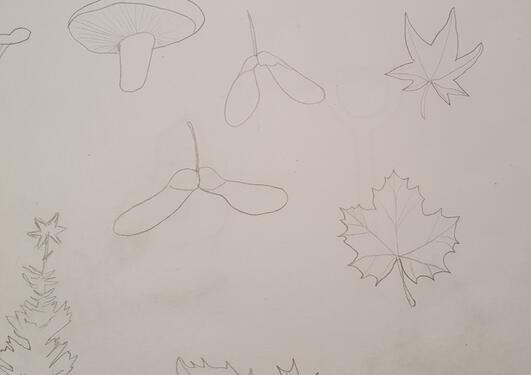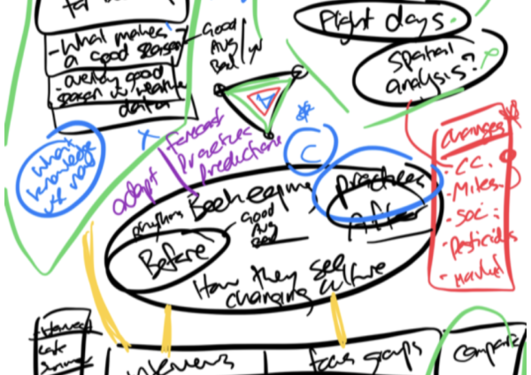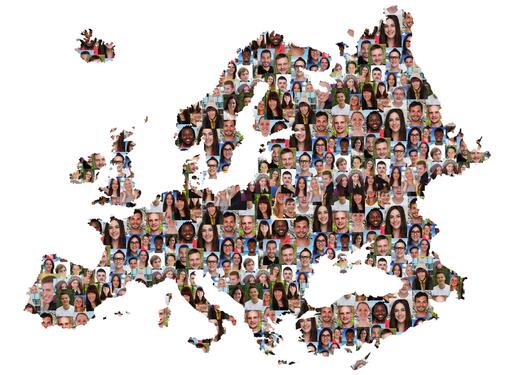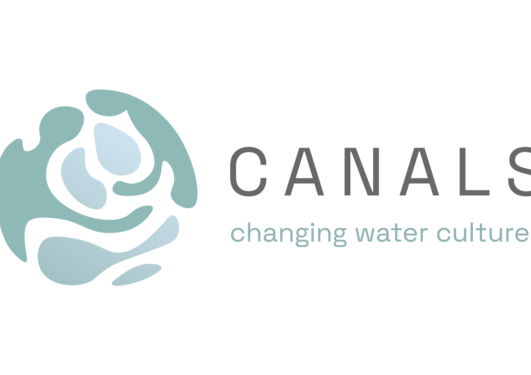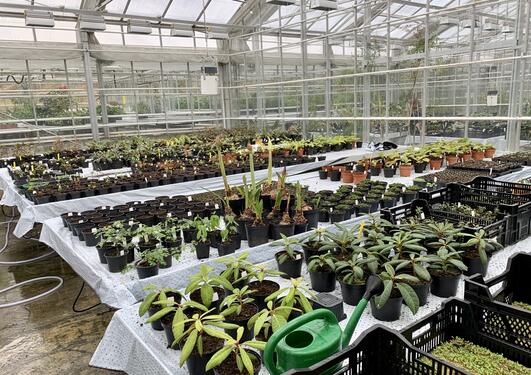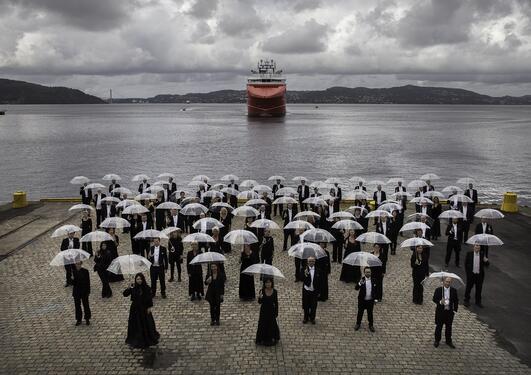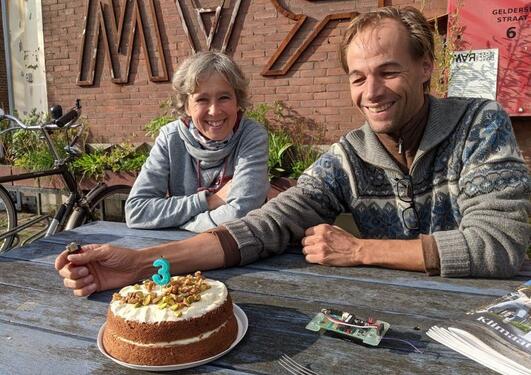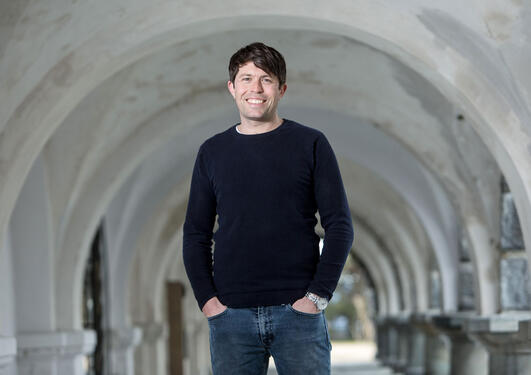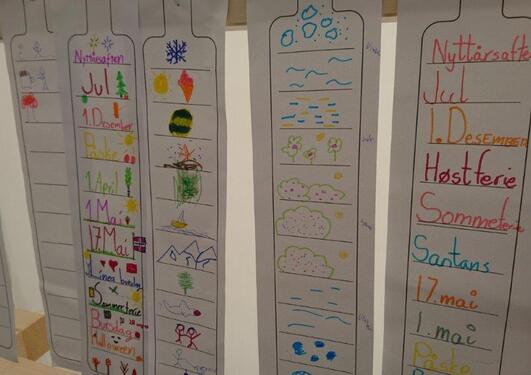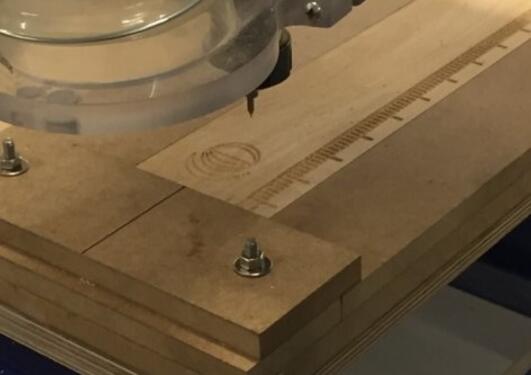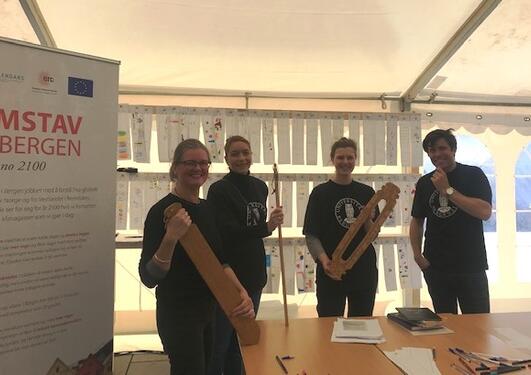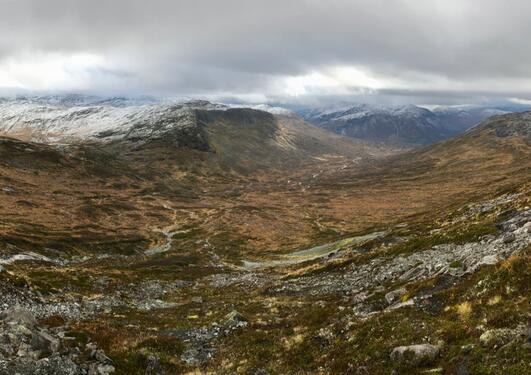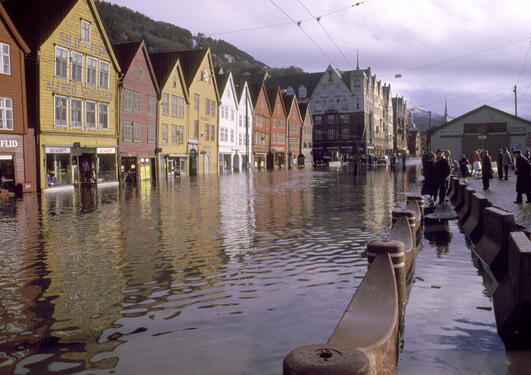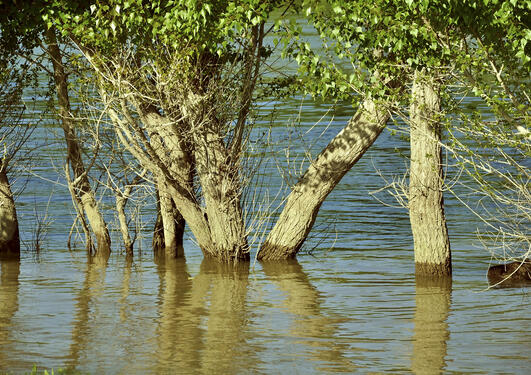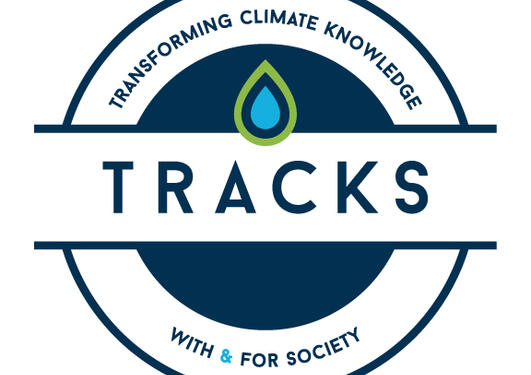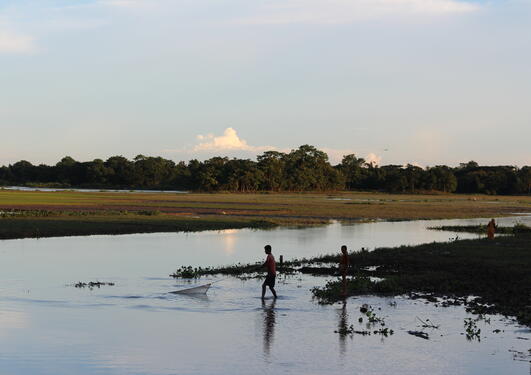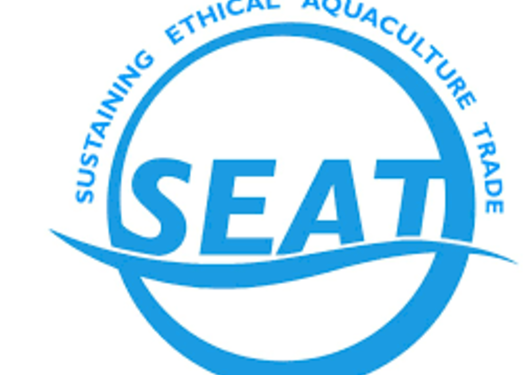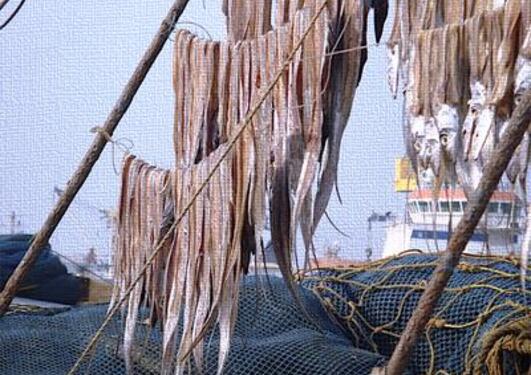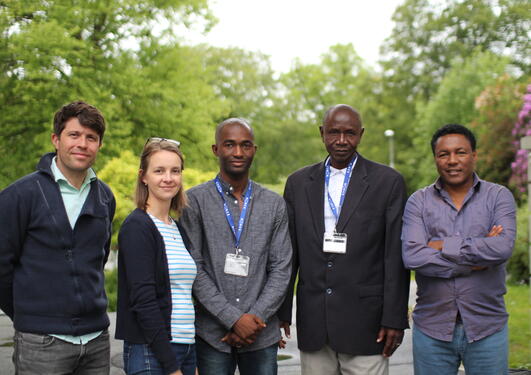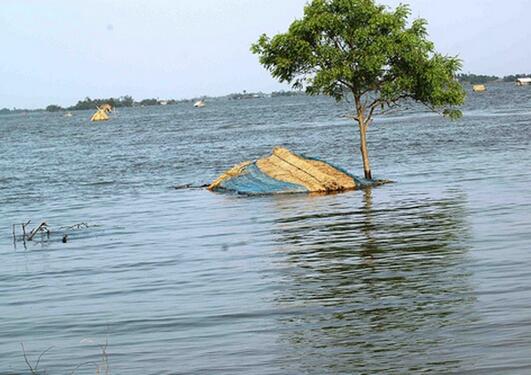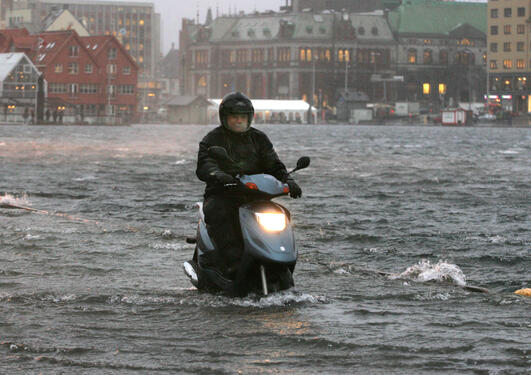- E-mailscott.bremer@uib.no
- Phone+47 55 58 29 85
- Visitor AddressParkveien 9Ida Bloms hus5007 BergenRoom201
- Postal AddressPostboks 78055020 Bergen
I am a Research Professor (Forsker I) with a background in environmental planning, policy and governance, and most of my recent work is on climate adaptation governance.
I am interested in how science and other ways of knowing are used in support of decisions and action in governance institutions, including at the so-called 'science-policy interface'. Over the past five years I've been uncovering the taken-for-granted, cultural and tacit knowledges of climate that influence how individuals and groups adapt; their cultural frameworks of seasons for example, or their notions of time.
I conduct research mainly in an 'extended' or participatory mode, in collaboration with groups in society, to co-produce knowledge and action for addressing the challenges they face. I aim to make visible those knowledges that have been overlooked or marginalised, including local, traditional, and practical knowledges. I am guided by perspectives on 'transdisciplinarity' and 'post-normal science', and practical approaches to 'citizen science', and 'climate services' for example.
Through my research I try to be active on both sides of the science-policy interface. I am a research associate at NORCE Climate, where I work closely with climate scientists in thinking about how to link their science to governance processes, including at the 'Climate Futures' centre. I am also vice-chair of the Young Academy of Europe (associated with Academia Europaea), providing targeted inputs to European science-policy and science-for-policy. I also have an adjunct assistant professor position at the University of Toronto Scarborough.
Beyond research, I am also passionate about developing and teaching curricula for early career researchers around 'how to do' transdisciplinary co-production in practice. Most recently, this sees me co-designing PhD schools in Africa as part of the Norwegian Research Council-funded CATER project.
I'm currently project leader of the ERC Starting Grant CALENDARS project.
I see important overlaps between how we conduct research and how we communicate it. I'm interested in setting up creative spaces where groups can simultaneously learn from research, and contribute to it.
In the CALENDARS project, we have been asking people in Bergen to re-create the primstav - traditional calendar stick - for contemporary life in the city. We've run workshops in collaboration with Aldea atelier in 2020, and with school children at the science open day 2019.
I've been active in facilitating citizen science initiatives in Bangladesh and Bergen, and for me these are exercises for learning through doing research.
Though I have always worked in a transdisciplinary mode, I have been frustrated that the findings of this research often end up published through traditional scientific channels, in a format inaccessible to the communities we work with. In 2024 I will publish a book on Changing Seasonality, which aims to take transdisciplinarity 'full circle'. The book comprises 33 chapters from researchers, but also practitioners we collaborated with – beekeepers, artists, writers – from around the world. Chapters are real-life accounts of how people from many walks of life revise their seasonal frameworks, written in an authentic way for each author, and accessible to a public readership.
I'm regularly invited to give guest lectures in courses at various departments of the University of Bergen, and the Norwegian School of Economics, and I'm a lecturer at the Norwegian Research School in Environmental Humanities.
I am passionate about developing and teaching curricula for early career researchers around 'how to do' transdisciplinary co-production in practice. Most recently, this sees me co-designing PhD schools in Africa as part of the Norwegian Research Council-funded CATER project; a spin-off of a PhD course on 'Co-producing climate adaptation research' that I developed with others in October 2019.
I also co-led the design and implementation of a Europe-wide course on conducting transdisciplinary research, for undergraduate and masters level students in seven universities (circa 200 students), as part of the ARQUS alliance.
I currently supervise five PhD candidates and two masters students.
- (2024). How seasonal cultures shape adaptation on Aotearoa – New Zealand's Coromandel Peninsula. Global Environmental Change. 1-12.
- (2023). Co-producing representations of summer rainfall in Bangladesh. Regional Environmental Change.
- (2023). Climate change challenges and opportunities for beekeeping in western norway.
- (2023). Carefully transforming our institutions: how they change, how they listen. 10 pages.
- (2022). «Beeware» workshop – kalenderendringer for birøkt på Vestlandet.
- (2022). Recognising the social functions of climate services in Bergen, Norway. Climate Services. 15 pages.
- (2022). Local representations of a changing climate. 21 pages.
- (2022). High-Quality Knowledge for Climate Adaptation: Revisiting Criteria of Credibility, Legitimacy, Salience, and Usability. Frontiers Media S.A..
- (2022). Editorial: High-Quality Knowledge for Climate Adaptation: Revisiting Criteria of Credibility, Legitimacy, Salience, and Usability. Frontiers in Climate.
- (2022). Changing climate, changing beekeeping.
- (2022). Changing beekeeping seasons in Vestland, Norway. 7 pages.
- (2022). Changing Beekeeping Seasons in Vestlandet, Norway .
- (2022). BeeWare- Sesongendringer og klimavarsling i birøkt.
- (2021). Quality Assessment in Co-developing Climate Services in Norway and the Netherlands. Frontiers in Climate. 1-15.
- (2021). Extended Peer Communities: Appraising the contributions of tacit knowledges in climate change decision-making. Futures: The journal of policy, planning and futures studies.
- (2021). Beyond rules: how institutional cultures and climate governance interact. Wiley Interdisciplinary Reviews: Climate Change (WIRESs).
- (2021). A water culture perspective for food security. 6 pages.
- (2020). The role of place-based narratives of change in climate risk governance. Climate Risk Management.
- (2020). Portrait of a climate city: How climate change is emerging as a risk in Bergen, Norway. Climate Risk Management.
- (2020). Local narratives of change as an entry point for building urban climate resilience. Climate Risk Management. 1-15.
- (2020). Grand Challenges for Climate Risk Management. Frontiers in Climate.
- (2019). ‘My new routine’: Assessing the impact of citizen science on climate adaptation in Bangladesh. Environmental Science and Policy. 1-13.
- (2019). Toward a multi-faceted conception of co-production of climate services. Climate Services. 42-50.
- (2019). Panel discussion on citizen science projects in meteorology .
- (2019). Initial Guidance Framework for Knowledge Quality Assessment in CoCliServ (CoCliServ D5.1). .
- (2018). Co-producing "post-normal" climate knowledge with communities in northeast Bangladesh. Weather, Climate, and Society. 259-268.
- (2018). An Evolving Framework for Advancing Climate Services in Norway . EOS.
- (2017). Narrative as a method for eliciting tacit knowledge of climate variability in Bangladesh. Weather, Climate, and Society. 669-686.
- (2017). Have we given up too much? On yielding climate representation to experts. Futures: The journal of policy, planning and futures studies. 72-75.
- (2017). Co-production in climate change research: reviewing different perspectives. Wiley Interdisciplinary Reviews: Climate Change (WIRESs).
- (2017). Climate research, citizen science and art in Bangladesh.
- (2017). Climate research, citizen science and art in Bangladesh.
- (2017). Assessing climatic trends of extreme rainfall indices over northeast Bangladesh. Theoretical and Applied Climatology. 1-12.
- (2017). A critical assessment of knowledge quality for climate adaptation in Sylhet Division, Bangladesh. Climate Risk Management. 43-58.
- (2016). Weaknesses in the ethical framework of aquaculture related standards. Marine Policy. 11-18.
- (2016). Sustainable aquaculture governance: challenges to participatory standard setting. 6 pages.
- (2016). Inclusive governance of aquaculture value-chains: Co-producing sustainability standards for Bangladeshi shrimp and prawns. Ocean and Coastal Management. 13-24.
- (2015). Responsible techno-innovation in aquaculture: Employing ethical engagement to explore attitudes to GM salmon in Northern Europe. Aquaculture. 370-381.
- (2015). Negotiating a place for sustainability science: Narratives from the Waikaraka Estuary in New Zealand. Environmental Science and Policy. 47-59.
- (2015). Climate change and agri-cultural knowledge: Bangladesh through a mirror and magnifying glass. 387-393. In:
- (2015). Know your food. Food ethics and innovation. Wageningen Academic Publishers.
- (2015). Challenges to Evaluating Coastal Management in the Twenty-First Century: Lessons from the Lofoten Archipelago. 20 pages.
- (2014). 'No right to rubbish': Mobilising post-normal science for planning Gisborne's wastewater outfall. Marine Policy. 22-30.
- (2013). Whose sustainability counts? Engaging with debates on the sustainability of Bangladeshi shrimp. 8 pages.
- (2013). Reflexively Mapping the Science-Policy Interface for Coastal Zones. 12 pages.
- (2013). Mobilising knowledge for coastal governance: re-framing the science-policy interface for integrated coastal management. Coastal Management. 56 pages.
- (2013). Mobilising high-quality knowledge through dialogic environmental governance: a comparison of approaches and their institutional settings. International Journal of Sustainable Development. 66-90.
- (2013). Mapping the ethical terrain of Chinese aquaculture. 18 pages.
- (2013). Framing a 'Post-Normal' Science-Policy Interface for Integrated Coastal Zone Management. 13 pages.
- (2013). Exploring the science-policy interface for Integrated Coastal Management in New Zealand. Ocean and Coastal Management. 107-118.
- (2013). Bioscience and Innovation Research: Examining the GM Animals Case with Indian Researchers Using the Ethical Matrix. Asian Biotechnology and Development Review. 1-17.
- (2012). Mapping core values and ethical principles for livelihoods in Asia. 6 pages.
More information in national current research information system (CRIStin)
Bremer, S. (2012). Framing a ‘post-normal’ science-policy interface for Integrated Coastal Zone Management. In: E. Moksness, E. Dahl, and J. Støttrup (Eds.) Global Challenges in Integrated Coastal Zone Management (pp. 179-191). Sussex: Wiley-Blackwell
Blanchard, A. & Bremer, S. (2012). Reflexively mapping the science-policy interface for coastal zones. In: E. Moksness, E. Dahl, and J. Støttrup (Eds.) Global Challenges in Integrated Coastal Zone Management (pp. 206-217). Sussex: Wiley-Blackwell
Van den Belt, M., Forgie, V., Bremer S., McDonald, G., Lennox, J., Montes de Oca, O., Joy, M., (2010). Modelling tools for adaptive integrated assessment: a case study of New Zealand regional authorities. Research Monograph Series – No. 17. Palmerston North: EERNZ
Bremer, S. (2009). Evaluating the State of New Zealand’s Coastal Management: Application of Integrated Coastal Management Indicators at National and Local Scale. Research Monograph Series – No. 16. Palmerston North: EERNZ. ISBN 978-0-9582949-3-5. ISSN 1176-7251 (print). ISSN 1179-1179 (online)
Since working as a researcher at the University of Bergen, I have worked on the following research projects:
- NFR-funded 'Climate Futures' Centre for Research-based Innovation: 2020-2028 (NORCE project)
- H2020-funded 'CONFER' project: Co-production of climate services for East Africa: 2020-2024 (NORCE project)
- Marie Curie 'CANALS' Individual Fellowship: Changing water cultures: 2021-2022
- ERC Starting Grant Project 'CALENDARS'; Co-production of seasonal representations for adaptive institutions: 2019 - 2023
- JPI ERA4CS-funded CoCliServ Project; 'Co-development of place-based climate services for action': 2017 - 2020
- NFR-funded UC4A project; 'Understanding Cultural Conditions of Climate Change Adaptation: 2015 - 2017
- NFR-funded 'TRACKS' project; Transforming Climate Knowledge with and for Society: 2014 - 2017
- EU 7th Framework SEAT Project; Sustaining Ethical Aquaculture Trade: 2011-2013
- EU 7th Framework PEGASUS Project; Public Perception of Genetically Modified Animals - Science, Utility and Society: 2010-2011
- EU 7th Framework SPICOSA Project; Science and Policy Integration for Coastal System Assessment: 2007-2011
- Doctor of Philosophy: Massey University New Zealand; "Exploring a 'post-normal' science-policy interface for Integrated Coastal Management"
- Postgraduate Certificate in Public Policy: University of Victoria, New Zealand
- Bachelor of Resource and Environmental Planning (Hons.): Massey University, New Zealand
